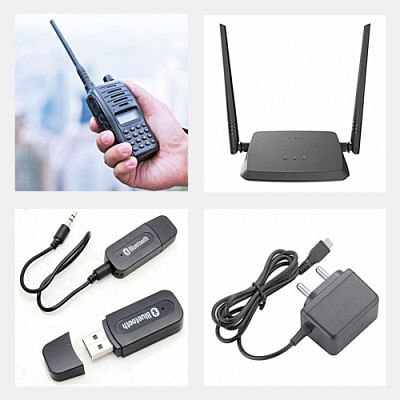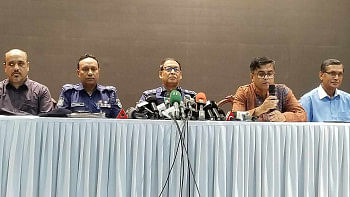Guideline drafted for walkie-talkie, IoT device manufacturing

The telecom regulator has drafted a guideline to give go-ahead to local firm to manufacturer and assemble devices related to telecom services.
The list of devices includes the Internet of Things (IoT) devices, but excludes mobile phones.
The Bangladesh Telecommunication Regulatory Commission (BTRC) took this initiative in order to help the country become more self-reliant in the IT industry amid the fourth industrial revolution, which has been marked by increasing automation across all sectors.
As per the draft guideline, two types of enlistment certificates will be awarded to interested candidates.
For category A, the applicant must have an adequate production capacity and its own testing lab with state-of-the-art facilities alongside a standardised layout for marketing and export.
Each lab will be required to have various testing facilities so that it is possible to produce world-class telecom-related wireless equipment in Bangladesh.
For category B, the applicant does not need to have a testing lab of its own but can instead contract outside testing lab for its products.
The BTRC will seek the opinions of various, stakeholders, researchers and experts before finalising the draft.
The products which are permitted for domestic manufacturing and assembling are industrial, scientific and medical (ISM) equipment.
This includes radio frequency-based devices, such as transmission antennas and Walkie-Talkie sets, and also IoT devices like repeaters, boosters and Bluetooth devices.
The move will create opportunities for local entrepreneurs to manufacture and assemble these products, said Brigadier General Md Shahidul Alam, director general for Spectrum Division at the BTRC.
"This will also ensure that consumers use low-cost telecommunications equipment and reduce the scope for the government to lose revenue by curbing illegal imports," he told The Daily Star.
Besides, this initiative will increase the country's tech-savy manpower by creating employment opportunities in the technical field. It will also facilitate foreign exchange earnings through the export of telecommunication service related equipment, Alam added.
Bangladesh already assembles and manufactures most of the handsets retailed by top brands thanks to a BTRC policy that awards enlistment certificates to local entities.
The government first introduced a tax policy for assemblers in fiscal year 2017-18, which was later revised in the budgets of 2018-19 and 2019-20.
Walton became the country's first company to set up a mobile phone assembly plant in October 2017 and began locally assembling all of its handsets since mid-2018.
Currently, there is a 57 per cent tax on smartphone imports and 32 per cent on basic and feature phones while the tax on locally assembled and manufactured handsets is 18 per cent and 13 per cent respectively.
At present, there are about 10 local assemblers that meet 75 per cent of the country's smartphone demand, according to an official of the Bangladesh Mobile Phone Manufacturing Association (BMPMA).
Around 8.5 lakh smartphones are sold in the country each month.
Asked whether the manufacturers and assemblers of IT related equipment will get such reductions in the tax policy, Alam said the commission is discussing it with the National Board of Revenue.
The enlistment certificate for category A will cost Tk 15 lakh and will be valid for 10 years while it will cost 7.5 lakh for renewals.
As for category B, it will cost Tk 10 lakh for the first 10-year period and Tk 5 lakh for renewals.
Local software developer DataSoft Systems already started large-scale assembly on a wide range of gadgets and IoT devices, such as smart home security and bio-medical facilities.
"Bangladesh can become a hub for making different IoT devices but for that, we shouldn't introduce excessive fees that could impede young entrepreneurs from coming into this business," Mahboob Zaman, managing director of DataSoft, told The Daily Star.

 For all latest news, follow The Daily Star's Google News channel.
For all latest news, follow The Daily Star's Google News channel. 



Comments